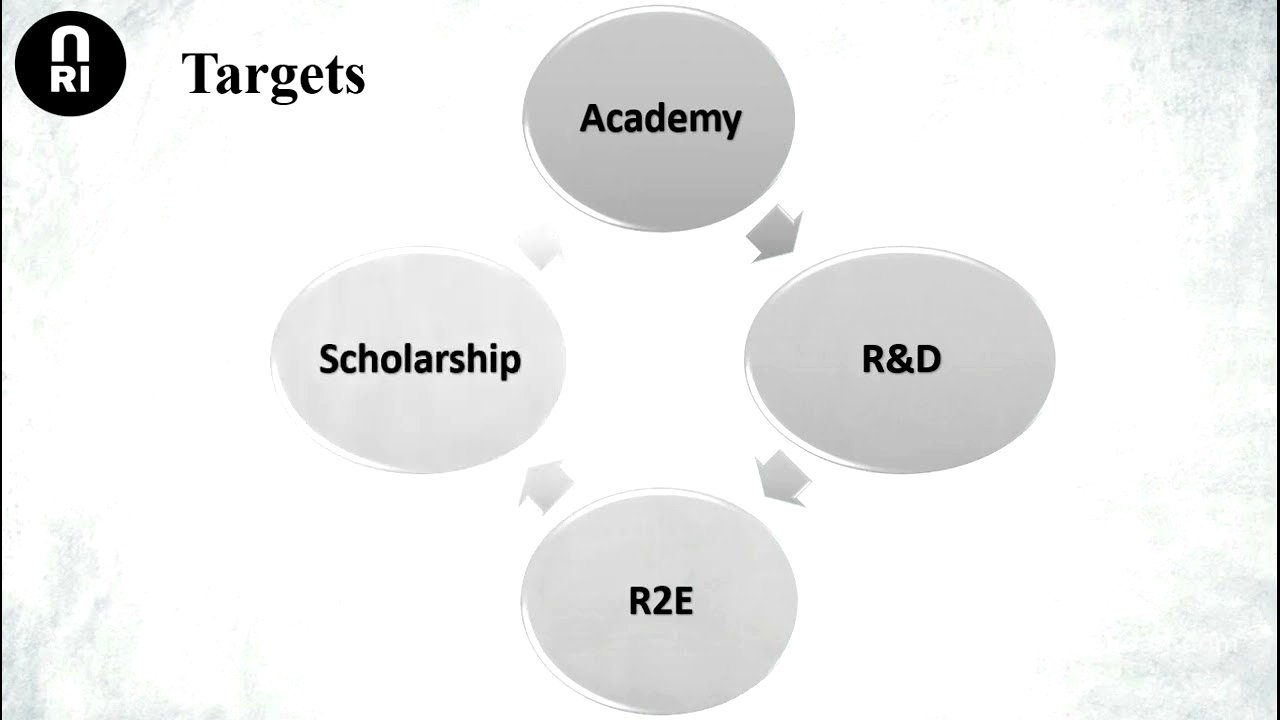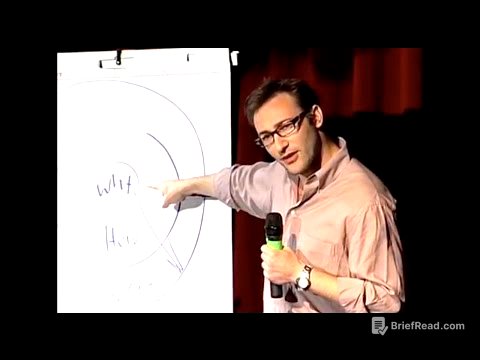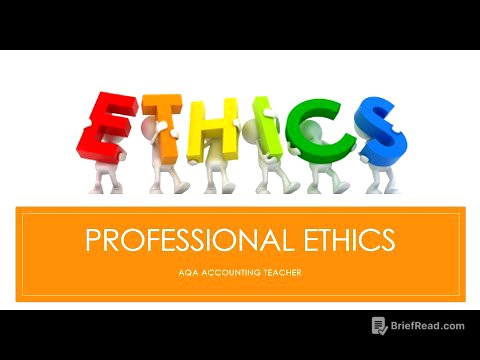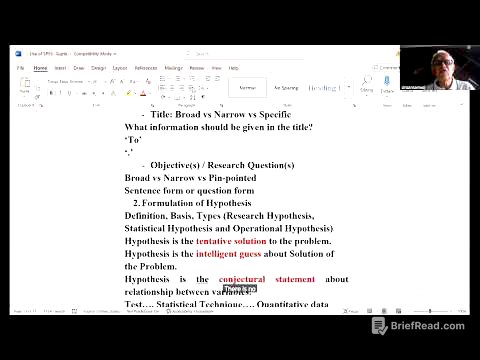TLDR;
This video, the second lecture in a series on scientific research, explores the concept of research as a passion, the various career paths it can lead to, the distinctions between a beginner, a researcher, and a scientist, and provides tips on how to become a good researcher. It emphasises the importance of passion, continuous learning, and humility in the field of scientific research.
- Research as a potential career, covering academic roles, R&D in companies, entrepreneurship through research, and scholarship opportunities.
- Differentiating between a beginner, a researcher, and a scientist, highlighting the progressive stages of involvement and contribution to scientific knowledge.
- Essential qualities for a good researcher, including being a good reader, a critical thinker, innovative, humble, and persistent.
Research as a Passion [1:00]
The lecture begins by examining whether scientific research can be a true passion. It poses a series of questions to determine if one's interest in research aligns with genuine enthusiasm and potential career prospects. If you enjoy science, development and research, then scientific research might be a good fit for you. The lecture highlights four potential career paths for those passionate about scientific research: academia (universities and research centres), Research and Development (R&D) in companies, Research to Entrepreneurship (R to E), and scholarships for further studies.
Career Paths in Scientific Research [2:46]
This section details the four main career paths available. In academia, one can progress from a teaching assistant to a professor, with opportunities in both universities and research centres. R&D in companies involves developing new products and solving production issues, particularly common in pharmaceutical companies. Research to Entrepreneurship (R to E) involves turning research findings into a business, requiring a business study, funding, and potentially leading to a start-up. Finally, scholarships offer opportunities to study abroad for master's degrees, PhDs, or postdoctoral research, with funding available from governments, universities, and professors with funded projects.
Distinguishing Between a Beginner, a Researcher, and a Scientist [13:12]
The lecture differentiates between three levels of engagement in scientific research: a beginner (someone learning research skills), a researcher (someone actively involved in research projects and publishing papers), and a scientist (a professor with significant scientific contributions and a recognised research school). A beginner is someone learning the basics, while a researcher is actively involved in projects, potentially as a master's or PhD student. A scientist, typically a professor, has made significant contributions to their field and has a substantial body of work.
Tips for Becoming a Good Researcher [15:39]
The final section provides tips on how to become a good researcher. Key attributes include being a good reader to build on existing knowledge, a critical thinker to develop innovative ideas, and humble, recognising the vastness of scientific knowledge. Persistence is also crucial, as highlighted by a quote from Einstein, emphasising the importance of persevering through challenges to find solutions. The lecture concludes by summarising the covered topics and introducing the assignment for the lecture.









